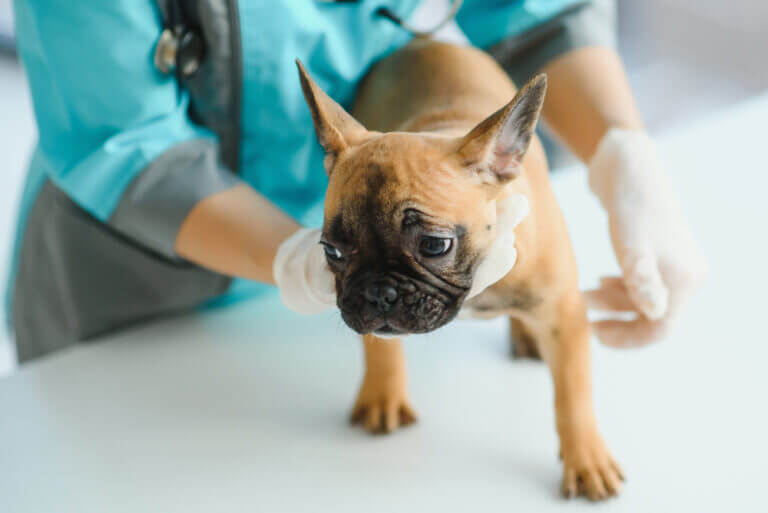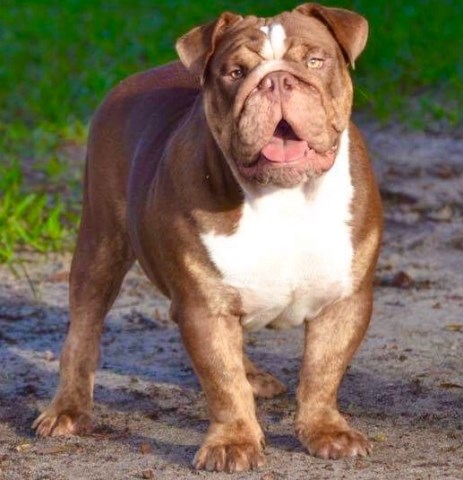Ivdd in french bulldogs everything you need to know
Table of Contents
Table of Contents
A diagnosis of intervertebral disc disease (IVDD) in your furry friend can be a difficult experience. French Bulldogs are one of the many dog breeds known to be susceptible to IVDD, which is a condition where the discs between the vertebrae deteriorate or shift, affecting the spinal cord and causing pain, discomfort, and mobility issues. In this article, we will explore everything you need to know about French Bulldog IVDD, from symptoms to treatment options.
The Pain Points of French Bulldog IVDD
IVDD is a painful and life-altering condition that can significantly affect your French Bulldog’s quality of life. Your furry friend’s ability to move around and enjoy the activities they love can be severely impacted, leading to feelings of depression and isolation. This condition can also cause other health issues such as loss of bladder and bowel control, limb weakness, and even paralysis.
The Target of French Bulldog IVDD
This condition primarily affects French Bulldogs, but it can also impact other breeds such as Dachshunds, Beagles, and Pekingese. IVDD may also be more prevalent in dogs with a genetic predisposition, such as those with long spines or short legs. Age can also play a factor, as the condition is more common in middle-aged or senior dogs.
Prevention and Treatment of French Bulldog IVDD
The good news is that IVDD can often be managed with proper care and treatment. Preventative measures such as maintaining a healthy weight, providing regular exercise, and avoiding jumping can help reduce the risk of developing this condition. If your French Bulldog does develop IVDD, early detection is crucial. Treatment options include pain management, inflammation reduction, and sometimes surgical intervention.
Personal Experience with French Bulldog IVDD
One of my French Bulldogs was diagnosed with IVDD, and it was a difficult time for both of us. Watching her struggle to move around and live her life was heartbreaking, but with proper treatment and care, she was able to regain some mobility and live a happy, albeit altered, life. The experience opened my eyes to the importance of understanding this condition and how to care for a dog with IVDD.
Symptoms of French Bulldog IVDD
The symptoms of IVDD can vary from mild to severe, depending on the location and severity of the degeneration. Some common signs to watch out for include back pain, stiffness, limping, reluctance to move, loss of appetite, and muscle weakness. It is essential to seek veterinary care if you suspect your French Bulldog may have any of these symptoms.
Treatment Options for French Bulldog IVDD
Once your French Bulldog has been diagnosed with IVDD, your vet will likely recommend a combination of rest, medication, and supportive care. Anti-inflammatory medication, pain relievers, and muscle relaxants may be prescribed to manage pain and reduce inflammation. Physical therapy, massage, and acupuncture can also help provide relief and improve mobility. In severe cases, surgery may be required to remove the affected disc or fuse affected vertebrae.
Question and Answers about French Bulldog IVDD
Q: Can IVDD be prevented?
A: While it cannot always be prevented, maintaining a healthy weight, providing regular exercise, and avoiding activities that place undue strain on your French Bulldog’s spine can help reduce the risk of developing the condition.
Q: Is there a cure for IVDD?
A: There is no cure for IVDD, but with proper care and treatment, the condition can often be managed to improve your French Bulldog’s quality of life.
Q: How long does it take to recover from IVDD?
A: The recovery time can vary, depending on the severity of the condition and the treatment used. Mild cases may only take a few weeks to heal, while more severe cases may require months of care or surgery.
Q: How can I provide the best care for my French Bulldog with IVDD?
A: Providing a comfortable and supportive environment is crucial for dogs with IVDD. This means providing soft bedding, avoiding stairs and jumping, and providing support slings or wheelchairs if needed. Consistent monitoring and communication with your vet can also help ensure your furry friend receives the best care possible.
Conclusion of French Bulldog IVDD
While a diagnosis of IVDD in your French Bulldog can be scary, there are many effective treatment options available to help manage the condition and improve your furry friend’s quality of life. It is essential to stay informed and seek veterinary care if you suspect your French Bulldog may be suffering from IVDD symptoms. With proper care and treatment, your furry friend can continue to lead a happy and healthy life.
Gallery
IVDD In French Bulldogs: Everything You Need To Know - French Bulldog Breed

Photo Credit by: bing.com /
IVDD In French Bulldogs: Keeping Your Pup Safe

Photo Credit by: bing.com /
My French Bulldog Was Diagnosed With Grade 5 IVDD - MINCE REPUBLIC

Photo Credit by: bing.com / ivdd french bulldog diagnosed grade just surgery recovery intervertebral disc disease emergency had story
French Bulldog Is Diagnosed With IVDD - YouTube

Photo Credit by: bing.com / french ivdd bulldog
French Bulldog IVDD 5 Days Post Op - YouTube

Photo Credit by: bing.com / ivdd






